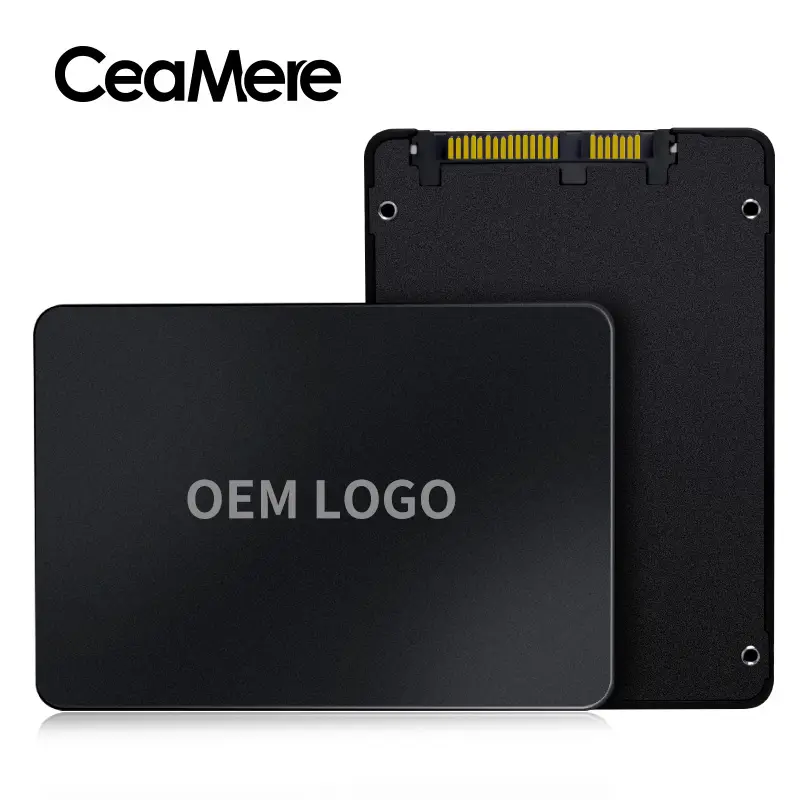Understanding the Different Types of Solid State Disks Available for Wholesale
Having the right solid-state drive (SSD) can significantly enhance the performance of computer systems, making them faster and more reliable. Whether you’re a computer hardware supplier or a business looking to purchase solid-state disks wholesale, understanding the various types of SSDs available is crucial. This blog aims to provide insights into the main types of SSD technologies—SATA, NVMe, and PCIe—while offering tips on choosing the best SSDs for specific applications and discussing cost-effectiveness.
Table of contents:
Comparing SATA, NVMe, and PCIe SSDs
Assessing Performance Metrics Across Various SSD Types
Identifying Suitable SSDs for Specific Hardware Applications
Evaluating Cost-Effectiveness of Different SSD Technologies
Comparing SATA, NVMe, and PCIe SSDs
When it comes to SSDs, not all drives are created equal. The three primary SSD types—SATA, NVMe, and PCIe—offer different connectivity options, speeds, and capabilities. SATA SSDs are the most common and provide moderate performance levels, which makes them a cost-effective choice for everyday users and enterprise storage solutions. NVMe (Non-Volatile Memory Express) SSDs are built for speed, offering far faster read and write speeds than SATA by tapping directly into the CPU via the PCIe interface. PCIe SSDs, on the other hand, are specifically designed for extremely high-performance applications, utilizing multiple PCI Express lanes to achieve blistering speeds. PCIe SSDs are ideal for heavy workloads such as big data analysis, video rendering, or gaming.
Assessing Performance Metrics Across Various SSD Types
Performance metrics greatly influence SSD decisions. Essential aspects include read and write speeds, latency, and endurance. For example, SATA SSDs typically deliver read/write speeds of around 550MB/s, sufficient for typical tasks like booting operating systems or running office applications. NVMe SSDs outperform SATA, with read/write speeds that can reach up to 3500MB/s, reducing delays in applications like video editing or software development. PCIe SSDs, using multiple lanes, scale well beyond even NVMe SSDs in performance metrics, making them the go-to solution for high-demand systems. By understanding these key metrics, businesses can match their SSD choices to their performance needs.
Identifying Suitable SSDs for Specific Hardware Applications
One of the challenges for computer hardware suppliers is aligning SSD choices with the specific needs of their customers. For consumer-grade laptops and desktops, SATA SSDs offer an affordable upgrade for improving system performance. However, for higher-end workstations or gaming PCs, NVMe SSDs are a better choice due to their superior speed and efficiency. PCIe SSDs are best reserved for demanding environments that call for speed and durability, such as enterprise data centers, embedded systems, or high-end gaming rigs. Smare’s Ceamere SATA 2.5 SSDs, for instance, provide robust options for general-purpose computing, while NVMe and PCIe SSDs cater to more specialized applications.
Evaluating Cost-Effectiveness of Different SSD Technologies
Cost is always a critical factor when purchasing SSDs wholesale. SATA SSDs remain the most affordable solution, making them suitable for bulk orders where budget constraints are a primary concern. NVMe SSDs strike a balance between price and performance, offering significant speed improvements with reasonable pricing. PCIe SSDs, though the most expensive, deliver unmatched speed and efficiency, providing excellent value for mission-critical applications. Bulk purchasing from trusted suppliers such as Smare allows businesses to enjoy competitive wholesale pricing and ensures a cost-effective procurement process. The Ceamere SSD lineup, for example, gives businesses the flexibility to select SSDs that meet a variety of performance and budget requirements.
Navigating the world of SSDs may seem complex, but having a clear understanding of the differences among SATA, NVMe, and PCIe SSDs can simplify your decision-making process. From offering moderate performance at a budget-friendly price point to delivering world-class speed for demanding applications, each type serves specific needs. If you’re a computer hardware supplier or a business looking to upgrade or scale, consider your system requirements and cost constraints before making a decision. Looking for reliable computer hardware suppliers? Contact Smare to explore their Ceamere SSD product range designed for performance and durability. With Smare’s expertise in solid-state disk wholesale, you’re guaranteed speed, quality, and cost-effectiveness for all your storage needs.


Comments
Post a Comment